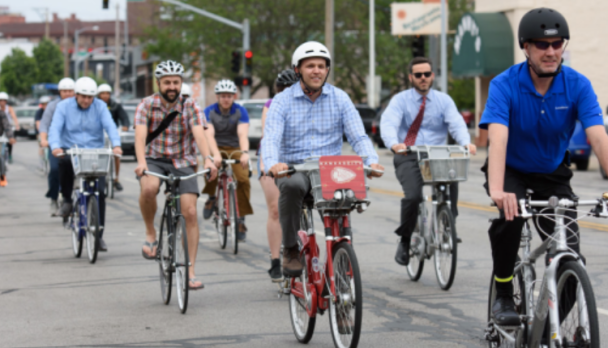Transportation Secretary Pete Buttigieg recently noted in the opening message of his ground-breaking National Roadway Safety Strategy that “Americans deserve to travel safely in their communities."
"Humans make mistakes," he said, "and as good stewards of the transportation system, we should have in place the safeguards to prevent those mistakes from being fatal. Zero is the only acceptable number of deaths and serious injuries on our roadways.”
Buttigieg's message was pressing: The National Highway Traffic Safety Administration recently reported that an estimated 42,915 people died in motor-vehicle traffic crashes last year – the highest number since 2005, and a 10.5 percent jump over 2020, making it the largest annual rise in history.
Buttigieg's safety strategy contained some important advances, such as the need to update the New Car Assessment Program. Federal law last year required that the NCAP, the five-star rating system that ranks a car’s safety, develop tests for automatic emergency braking meant to keep vehicles from hitting pedestrians.
That's why it was such a disappointment that the NHTSA so far has indicated that
the new NCAP will not include testing cars for crash-avoidance with bicyclists.
The NHTSA said in March that it "believes that detecting cyclists is technically more challenging for vehicle AEB systems” and so we must wait until 2025 or later, potentially under a different administration, to know how well those systems meet that challenge.
At the League of American Bicyclists, we welcomed the National Roadway Safety Strategy as a breakthrough and applauded the NHTSA's new safety regulations for cars. Still, after seven years of advocacy over two administrations, the federal government's the answer to cyclists on safety standards is, "No, not yet."
The NCAP, promulgated in 1979, was the first standard of its kind, and its success at providing consumers with safety information led to a proliferation of such standards internationally. Even as other countries have adopted NCAPs, however, the United States has failed to keep its own up to date.
The most recent update of the NCAP, a lengthy process which began in 2013 and will conclude its final public comment period in June, was highly anticipated. More than two-thirds of the comments submitted earlier in the process requested “that each crash avoidance technology included in the NCAP system should be evaluated for its performance for avoiding or mitigating crashes with bicyclists and all other non-occupant road users.” At the League, we encouraged safety advocates in calls for the inclusion of bicyclists — because we know that vehicle-safety technology can save lives.
The NHTSA knows that Europe, Japan, and Australia have been testing or have committed to testing cars for bicyclist safety, and it also knows that bicyclist fatalities in the U.S. have been rising for the past decade. So its failure to include testing of automatic emergency braking vis-a-vis bicyclists in its proposed NCAP update is at odds with Buttigieg's safety strategy.
The NHTSA has not accounted for why such testing for bicyclists should not be included in NCAP — nor has it explained why it is ignoring nearly a decades' worth of advocacy from bicyclists. Meanwhile, many studies show a 26 to 60 percent reduction in bicycle-vehicle crashes from deployment of automatic braking technology and that it might address 50 to 80 percent of bicyclist deaths.
No doubt, the inclusion of automatic emergency braking for pedestrians in NHTSA's NCAP program is a step in the right direction. But the failure to account for bicyclists remains a glaring omission in NHTSA's conception of car safety.
If we as a country are to confront the scale of death and suffering from vehicle collisions, and to make tangible progress on our goal of zero traffic deaths, the NHTSA must mandate that cars reach safety standards for pedestrians and bicyclists alike. The practices of NCAPs abroad show that this is technologically feasible, and that the barrier to accomplishing it in America is only political will.
Austin Wu is a safety policy specialist at the League of American Bicyclists. The NHTSA is accepting comments about the new NCAP until June 8. One can submit comment via this template from the League.







